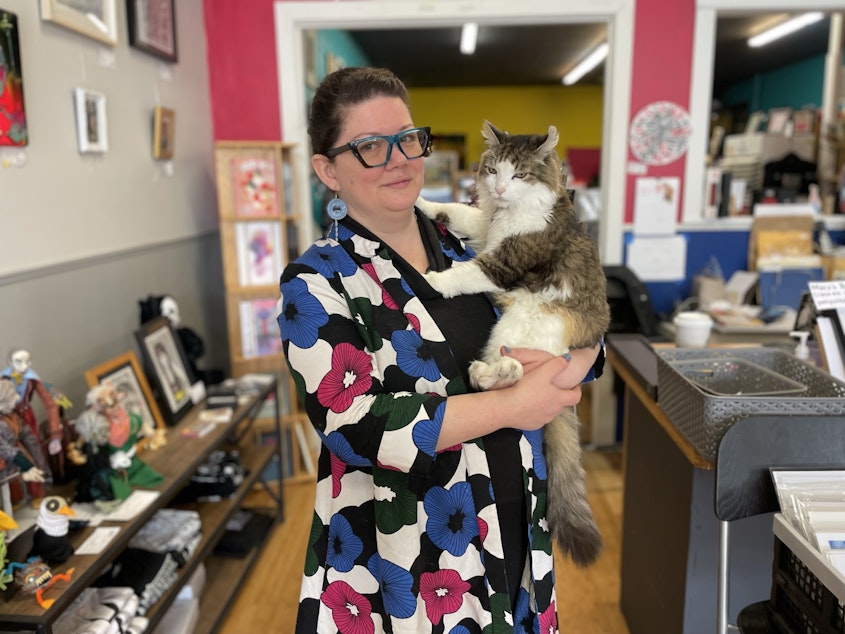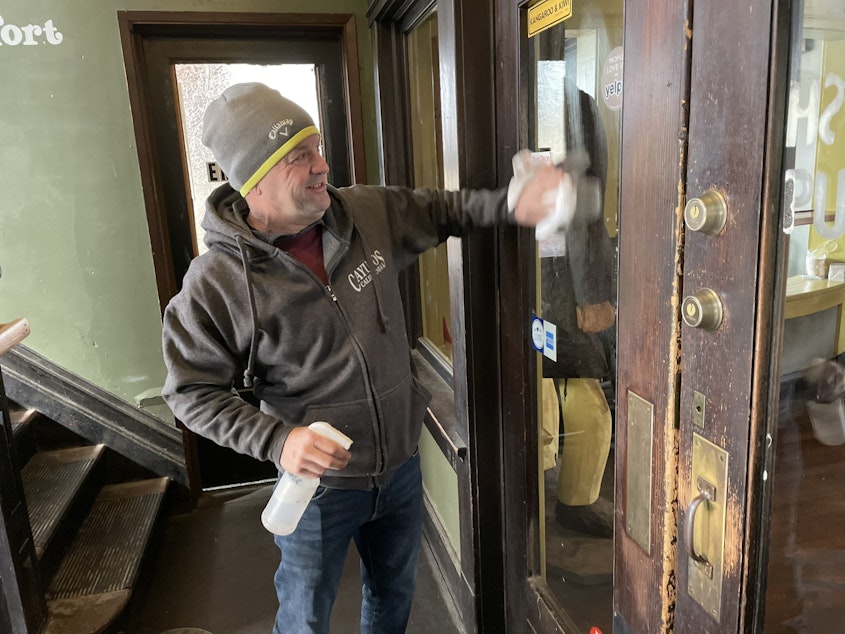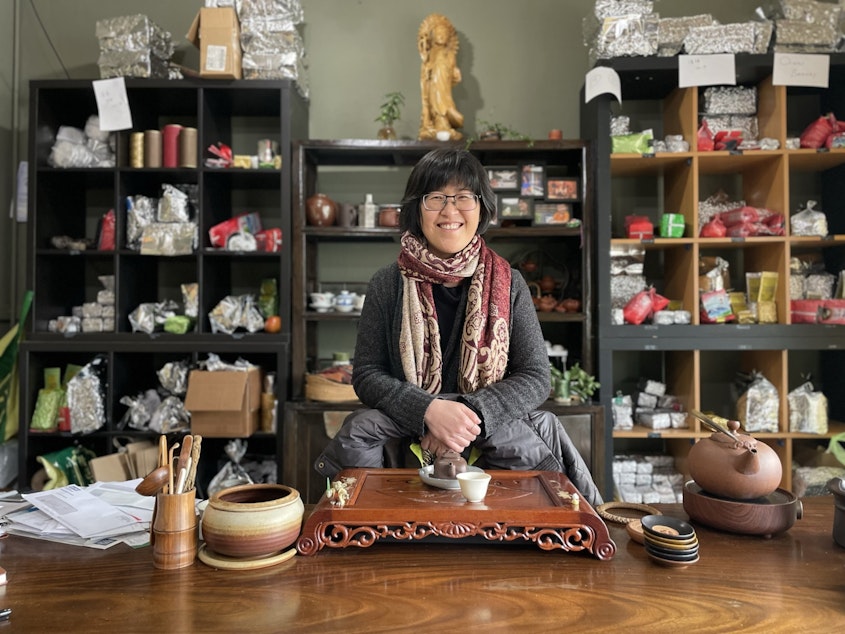As Ballard grows, new apartments churn out regulars for local businesses

In Ballard, some businesses say they've found a reliable customer base living in new apartments nearby. Apartment dwellers helped swell Ballard's urban village population by 55% between 2010 and 2020. But dwindling tourism and online shopping have changed the way some stores do business.
Bradley Howe owns the Kangaroo and Kiwi, an Australian themed bar in downtown Ballard. He said people who live in apartments nearby have become regulars.
"It’s been great, definitely," he said. "We’ve been here 10 years in this location. I can’t quite remember what it was like 10 years ago, but it certainly wasn’t like this. I’ve seen this many condos built right in front of me, I’ve seen it all happening. And you definitely notice the difference."

A little farther down Market Street is a store called Push Pull. It sells art, indie comics, and art supplies.
Maxx Follis-Goodkind is a co-owner of the business.
RELATED: Ballard beehive apartments offer refuge for a diverse workforce
She said that although she’s seen far fewer tourists since the pandemic, the people who live in Ballard’s new apartments have been reliable customers. But they spend less money than tourists.
For instance, they might come in to buy a few paints for their art hobby, rather than a painting.
"It’s maintenance purchasing instead of splurging because you’re on vacation," Follis-Goodkind said.

Floating Leaf Tea is on the next block. Owner Shiu Wen Tai said the new apartments in the neighborhood have led to increased diversity of the people she sees outside her shop.
“I love to watch people walking by and I would say, colorwise — there are more colors now.”
That's consistent with census data, which shows Ballard's urban village was 13% less white in 2020 than it was in 2010. The difference was made up for by larger increases in Ballard's population of Asian and multiracial residents.
Sponsored
But most of those new residents aren't coming into her store, Tai said. That’s because most of her sales have been made online since the pandemic started.
As a result of her shift to mostly digital commerce, Tai hasn’t kept her store tidy, and people peeking through the windows can’t tell if it’s open or closed, she said.




